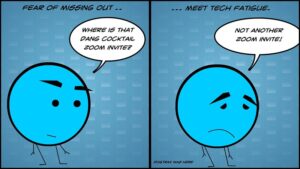 Thanks to Lee Parker in Information Services for this popular but seemingly poorly understood term. Lee notes that “Based on my usage and that of H.G. Andrade I expect ‘a scoring tool’ among the definitions. Why isn’t it?” Let’s find out!
Thanks to Lee Parker in Information Services for this popular but seemingly poorly understood term. Lee notes that “Based on my usage and that of H.G. Andrade I expect ‘a scoring tool’ among the definitions. Why isn’t it?” Let’s find out!
The origin goes back to the Middle Ages; The OED entry states that directions in liturgical books, written in red, would give directions to those conducting religious services. Later definitions get us closer to Lee’s idea. By the 18th Century, a rubric could mean a custom, a set of rules, a “general prescription.” Later still, we have starting in 1959 “An explanatory or prescriptive note introducing an examination paper.” The list of definitions goes on and on, including makeup to make one’s complexion rosy and a calendar of saints.
The origin? In Classical Latin, rubrīca for red ochre. Despite that ancient lineage, usage of our word has done nothing but increase since a low point in 1930.
Merriam Webster Online provides a familiar definition that I did not see at The OED (horrors!) and one that gets close to my own sense of “a guide listing specific criteria for grading or scoring academic papers, projects, or tests.”
I admit to playing fast and loose with our word, often using it when I mean a series of steps writers need to take in order to complete an assignment, before I grade it.
So Lee, you are correct: rubrics, in popular parlance today, mean a scoring tool, though I like the idea of red-letter manuscripts, ochre for makeup, and calendars of saints.
Send me words and metaphors to jessid-at-richmond-edu or by leaving a comment below.
See all of our Metaphors of the Month here and Words of the Week here.
Creative-Commons image liturgical text with rubrics, courtesy of The Saint Lawrence Press.








